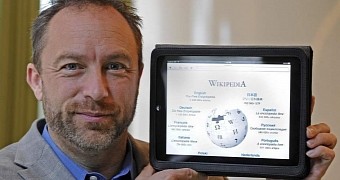Wikipedia founder Jimmy Wales suggests that Apple should by no means agree with the new UK proposed bill that would ban encrypted communications, wondering what could happen if the Cupertino-based company actually stops selling its products in the country completely.
Apple is one of the companies opposing a new bill in the United Kingdom that would force tech companies selling products and services in the country to store encryption keys allowing the government to access protected devices when a warrant is provided.
Although the firm praised the encryption its devices, such as the iPhone, and services, including iMessage and Facetime, are currently using, saying that nobody, not even the company, can bypass the security measures configured by users, it might not have any other choice but obey the law and store secret keys and provide them to the government should the company be asked to.
The law could help the govt’s fight against terrorism
The new bill is part of nationwide efforts to prevent criminals and terrorists from turning to communication devices and applications that feature encryption systems impossible to crack, including iPhones.
But Jimmy Wales said in a short tweet that Apple always has the option to stop selling iPhones in the United Kingdom, a move that would significantly impact the local market and serve as a way to fight back government laws.
“I would like to see Apple refuse to sell iPhone in UK if gov't bans end-to-end encryption. Does Parliament dare be that stupid?” he tweeted.
Obviously, it’s close to impossible to see Apple giving up on the British market given the fact that it’s one of the largest in Europe, but the company can seek other methods to protest against the government’s new law should it pass.
Statistics provided by Kantar Research show that in the United Kingdom, iOS is the second most used mobile platform, with a share of 38.3 percent, up 7.8 percent in the three-month period ending September 2015.
I would like to see Apple refuse to sell iPhone in UK if gov't bans end-to-end encryption. Does Parliament dare be that stupid?
— Jimmy Wales (@jimmy_wales) November 3, 2015

 14 DAY TRIAL //
14 DAY TRIAL //